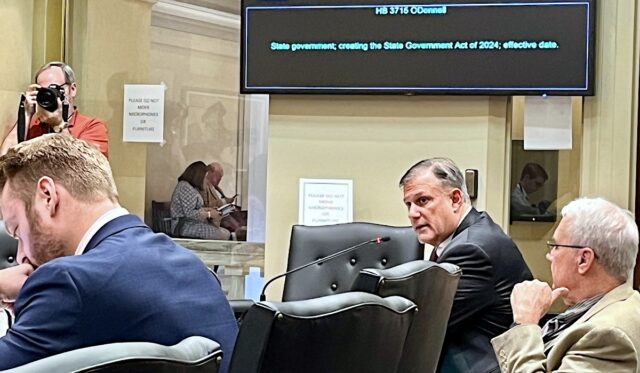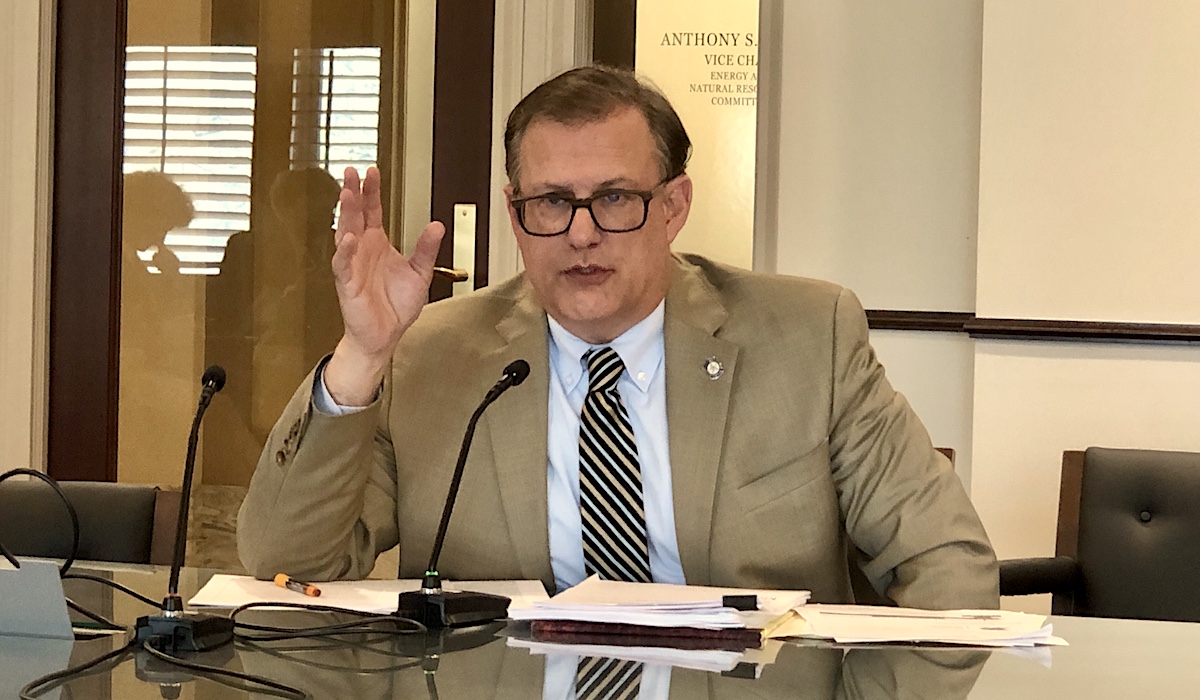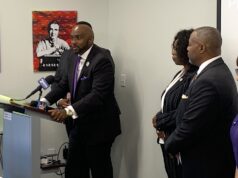

Less than one year after a slate of criminal charges against him and his wife were dismissed, House Majority Whip Terry O’Donnell is running a bill to legalize the reimbursement of “surplus” campaign funds to pay attorney fees “for the successful defense of an investigation or prosecution.”
O’Donnell’s committee substitute for House Bill 3715, which advanced 5-3 today from the House Ethics and Elections Committee, initially proposed making the change effective retroactively Jan. 1, 2024. Questioned by committee members about the date, O’Donnell said he “meant for it to become effective after I’m out of office” in 2026. O’Donnell offered to amend the bill if it moved forward, but the committee ultimately changed the date to 2026 by unanimous consent.
An attorney himself, O’Donnell (R-Catoosa) is term-limited this year and has about $92,000 remaining in his 2022 reelection committee. State law currently allows surplus campaign funds to be returned to contributors, sent to other committees, or donated to charities or school districts.
In presenting HB 3715l, O’Donnell only discussed the possibility of using campaign funds as reimbursement for legal fees involving Oklahoma Ethics Commission proceedings, not state criminal charges.
“What this bill would do is allow officeholders or candidates if they are challenged by the Ethics Commission about campaign financing — if they are successful in defending a challenge to their campaign expenses or some breach of official duty — to use surplus campaign funds to reimburse them for their legal costs,” O’Donnell said.
But the bill’s language appeared to be broader, authorizing use of surplus campaign funds “to retain legal counsel for the successful defense of an investigation or prosecution of the candidate’s campaign, campaign finances, or any other violation of the candidate’s or office holder’s official duties.”
The charges against O’Donnell and his wife involved an alleged criminal violation of his official duties: changing state law and allowing Teresa O’Donnell to become a state-appointed tag agent.
The O’Donnells were indicted by an Oklahoma County grand jury in December 2021, and the case lingered for more than a year until new Attorney General Gentner Drummond assumed control of it from the Oklahoma County District Attorney’s Office.
Drummond announced April 6 that he was dropping the charges against the O’Donnells because Terry O’Donnell had been “targeted” by former Attorney General Mike Hunter, who had asked then-District Attorney David Prater to examine O’Donnell’s tag agency bills. Despite the dismissal, Drummond opined that “Terry’s guilty” and that he would be keeping an eye on legislator self-dealing in the future.
‘It could appear to the public as being self-serving’

During Monday’s committee hearing, O’Donnell was asked a series of questions about whether Oklahoma Ethics Commission rules already allow candidates facing campaign violations to cover attorney costs from “surplus” funds they raise.
“Representative, is this not already in the rules of the Ethics Commission?” asked Rep. Tom Gann (R-Inola), who voted against the bill.
O’Donnell said he had only been notified shortly before the afternoon meeting that Ethics Commission rules may already authorize the action he was describing.
“You could make an argument that it is, and I think this bill clarifies any confusion about that,” O’Donnell said.
Rep. Mickey Dollens (D-OKC) asked how the disbursement of funds from campaign accounts would work.
“I think what this bill envisions, Representative, is a reimbursement,” O’Donnell said in response. “I think at least the way I intended this to be used was that the office holder or the candidate would use out-of-pocket funds to do that and then be reimbursed if they were successful (in their defense).”
After the meeting, Dollens expressed concern about O’Donnell running the bill, questioned the alleged scrivener’s error on the effective date, and said lawmakers should be aware of perception when filing legislation that could benefit them.
“It’s very important that we not author self-serving language, and in regards to this legislator’s history, it could appear to the public as being self-serving,” Dollens said. “We must all follow the rule of law, and we must not author legislation that would appear to benefit us financially.”
Asked for comment about HB 3715 after it advanced from committee, O’Donnell walked down a House stairwell to his office and responded with a question of his own: “Are you still working for the DA’s office?”




















